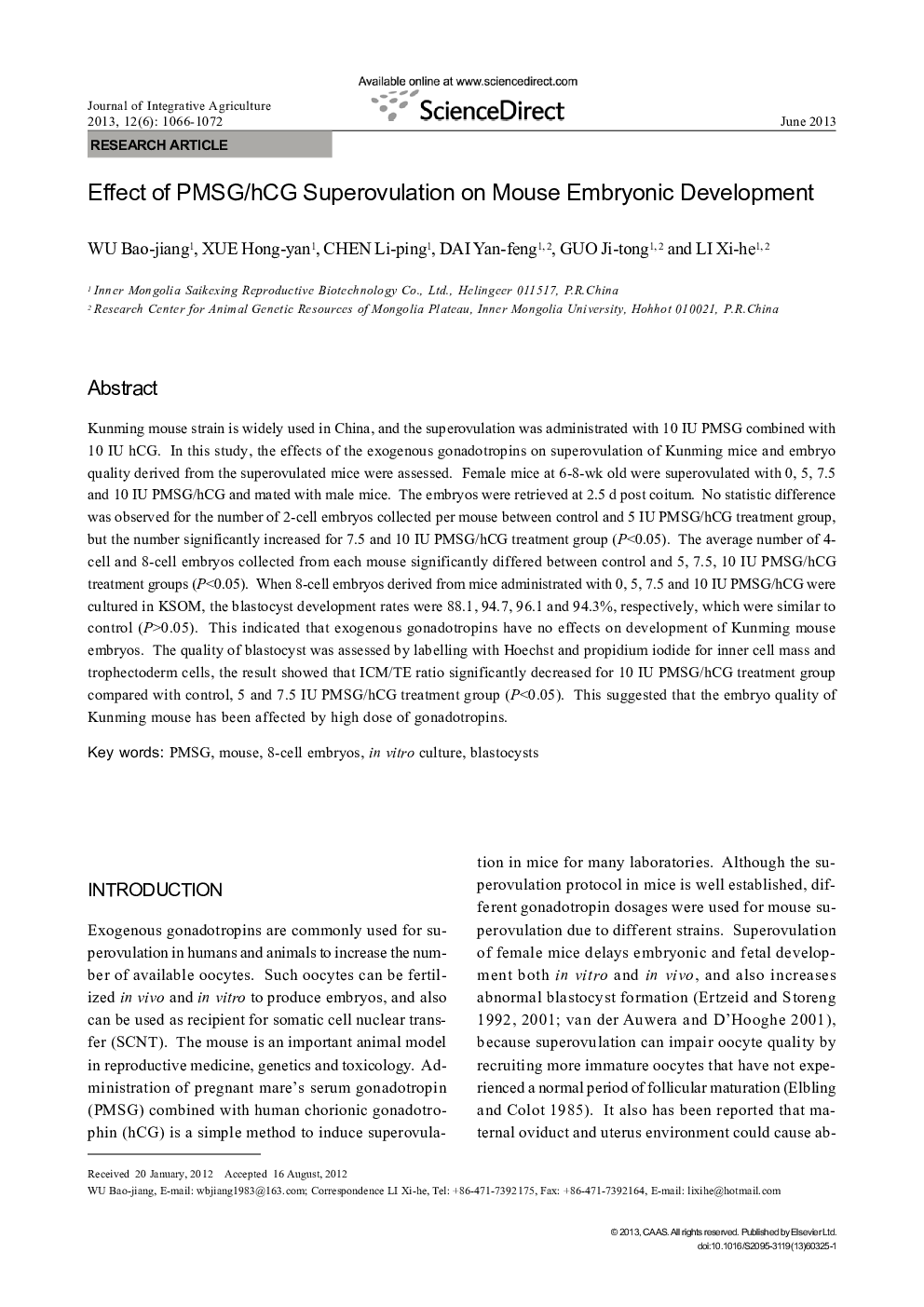| Article ID | Journal | Published Year | Pages | File Type |
|---|---|---|---|---|
| 4495061 | Journal of Integrative Agriculture | 2013 | 7 Pages |
Kunming mouse strain is widely used in China, and the superovulation was administrated with 10 IU PMSG combined with 10 IU hCG. In this study, the effects of the exogenous gonadotropins on superovulation of Kunming mice and embryo quality derived from the superovulated mice were assessed. Female mice at 6-8-wk old were superovulated with 0, 5, 7.5 and 10 IU PMSG/hCG and mated with male mice. The embryos were retrieved at 2.5 d post coitum. No statistic difference was observed for the number of 2-cell embryos collected per mouse between control and 5 IU PMSG/hCG treatment group, but the number significantly increased for 7.5 and 10 IU PMSG/hCG treatment group (P<0.05). The average number of 4-cell and 8-cell embryos collected from each mouse significantly differed between control and 5, 7.5, 10 IU PMSG/hCG treatment groups (P<0.05). When 8-cell embryos derived from mice administrated with 0, 5, 7.5 and 10 IU PMSG/hCG were cultured in KSOM, the blastocyst development rates were 88.1, 94.7, 96.1 and 94.3%, respectively, which were similar to control (P>0.05). This indicated that exogenous gonadotropins have no effects on development of Kunming mouse embryos. The quality of blastocyst was assessed by labelling with Hoechst and propidium iodide for inner cell mass and trophectoderm cells, the result showed that ICM/TE ratio significantly decreased for 10 IU PMSG/hCG treatment group compared with control, 5 and 7.5 IU PMSG/hCG treatment group (P<0.05). This suggested that the embryo quality of Kunming mouse has been affected by high dose of gonadotropins.
